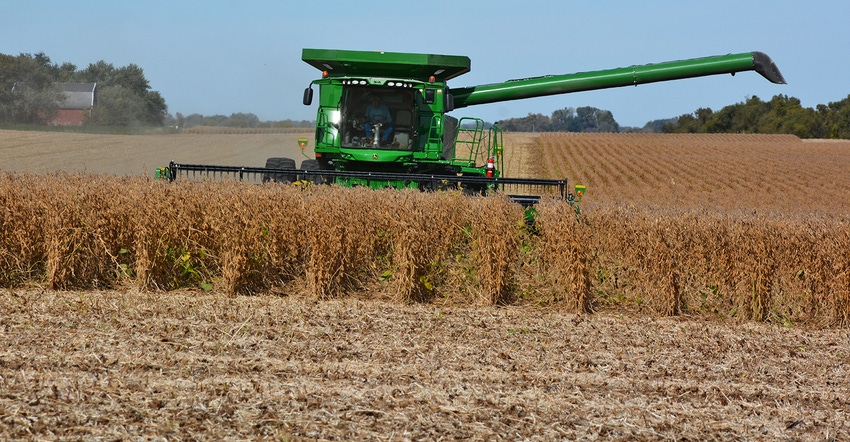
Minnesota’s ag community is hearing more about a new soybean processing and biodiesel facility that investors plan to build in Crookston.
The Minnesota Department of Transportation recently announced a $450,000 grant awarded to Epitome Energy LLC for new rail infrastructure in Crookston. At the Minnesota Crop Improvement Association annual meeting Jan. 8, Tom Slunecka, Minnesota Soybean CEO, gave an overview of checkoff projects, which included an update on the proposed facility.
Epitome plans to build and operate a $130 million large-scale crushing and biodiesel facility close to the University of Minnesota campus in Crookston, Slunecka said. It would have the capacity to crush 21 million bushels of soybeans and produce 30 million gallons of biodiesel annually. He shared an architectural rendering of what the complex would look like.
“A lot could happen there,” Slunecka said. With new facilities and its proximity to the university, the site could be a showcase for education and training as well as processing.
The new facility also would open the door for another venture nearby: product testing.
“Testing of products would have to come off that plant,” Slunecka said. “The university does not have a place to test either.”
When Minnesota Soybean has done processing research and product testing in the past, it has worked with Texas A&M University and others, paying up to $1,000 per pound to get oil processed.
Once the new plant opens, Slunecka said there are several soybean products proven and ready for production, including an organic high-oleic oil, TruSoya.
“We need community support for this,” he said. He encouraged people to talk with their co-op and legislative representatives to spread the word.
“This is a win-win for everyone,” he added.
The project is reportedly still in the planning phase, with financing and permitting yet to be finalized.
U-M Extension conducted an economic feasibility study in May on the impact of a new plant in the Crookston area. Analysts found that the plant, during construction, would support 820 jobs in Polk County and provide $134 million in economic activity. Plant operations would generate $323 million of new economic activity and provide 330 new jobs, plus soybean purchases would support 180 farm-related jobs.
Analysts estimated that when fully operational, the crushing plant will raise soybean basis by 10 to 20 cents per bushel.
About the Author(s)
You May Also Like






